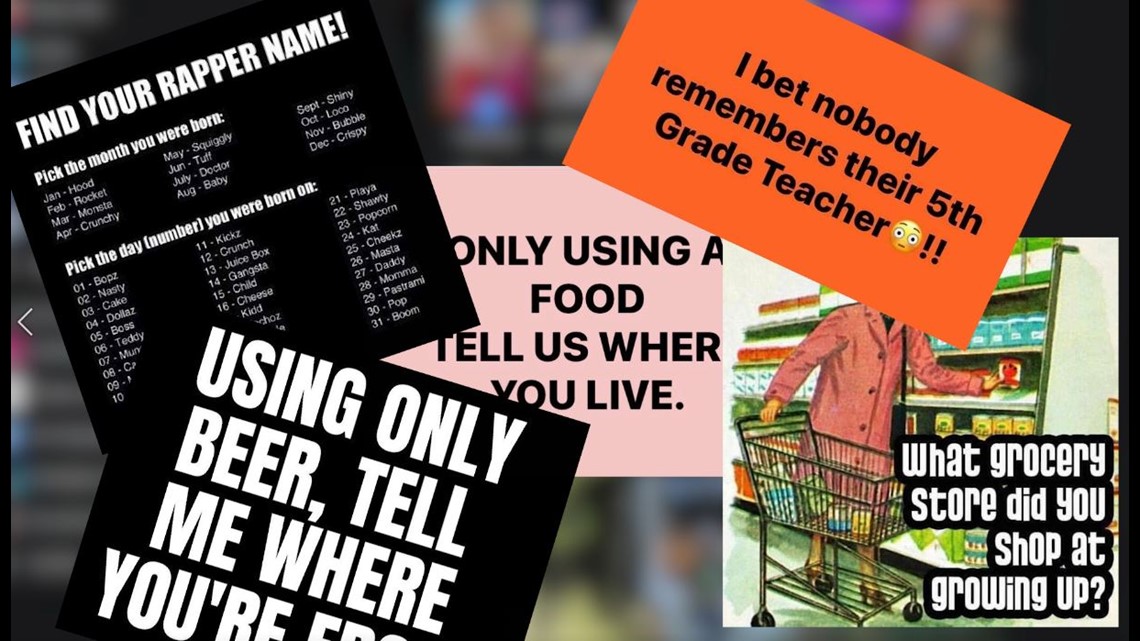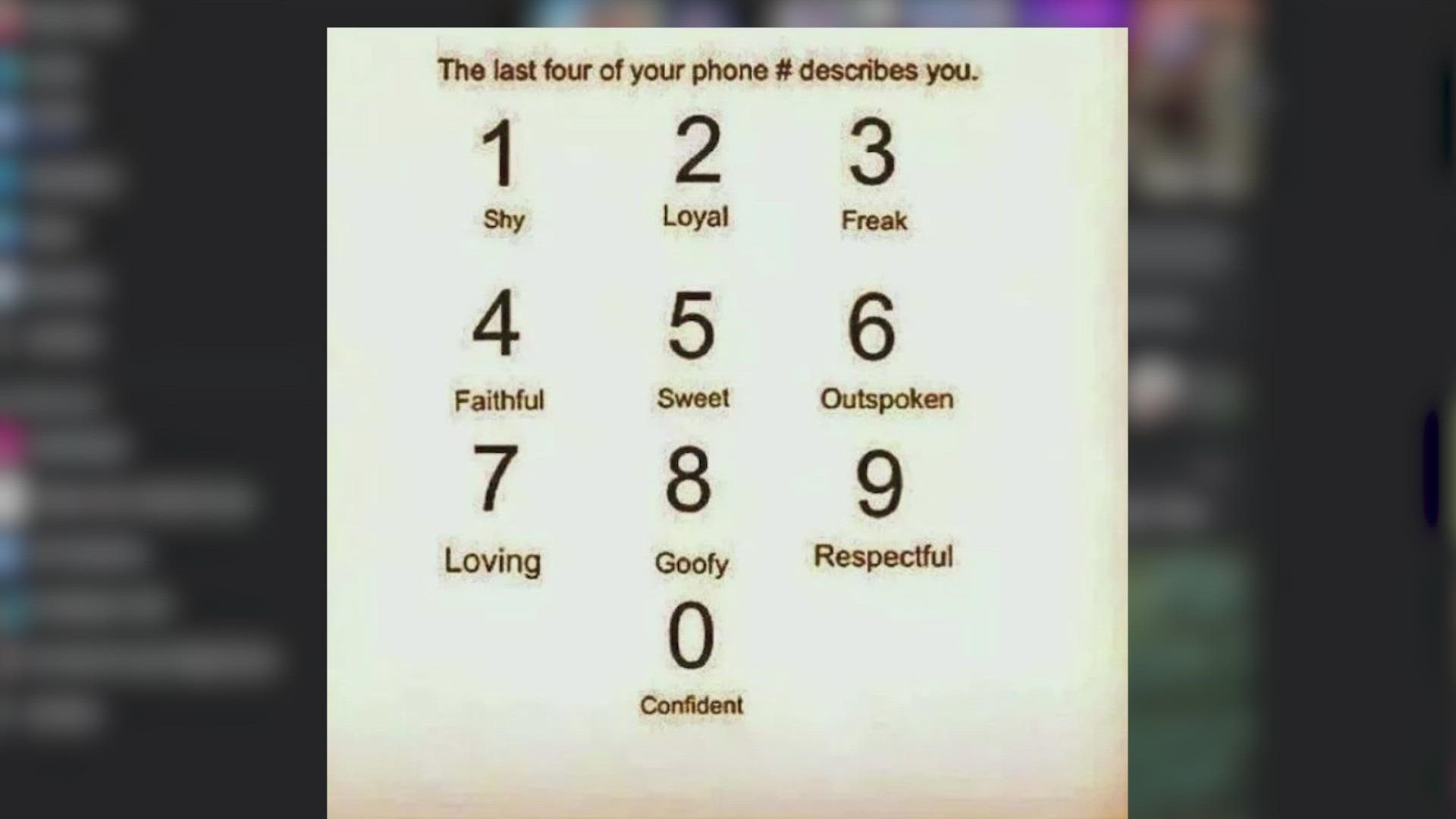Have you seen photos or memes on your social media feeds asking you to answer survey questions or a silly question?
One example from Facebook reads: “The last four digits of your phone number describes you.” Many users replied publicly in the comments with their responses.
Or maybe it's a survey asking you to post answers to questions like “who’s your childhood best friend?” or "who was your favorite teacher in school?"
Another one asks you to share something called your “Star Wars name” using your mother’s maiden name and the city in which you were born.
Regardless of the intention of these types of posts, they all encourage people to share personal information in their responses.
The Better Business Bureau warns against replying to these types of prompts.
"They will ask you to indicate what your mother's maiden name is or what the model of your first car was. And these are security questions for bank accounts, for insurance accounts," said Josh Planos, Director of Public Relations and Communications for the BBB.


The BBB said it’s seen an increase in these types of scams during the pandemic, when more people have turned to social media to connect with friends and family.
In its 2020 “Scam Tracker Risk Report,” the BBB reported a 24.9 percent increase in the amount of scam reports it received from 2019 to 2020.
It can be very difficult to prosecute these data breaches once your information is exposed, so the key is to avoid engaging with these posts in the first place.
"You don't need to be completely afraid every time you get online…but if something feels fishy or if something feels like you're giving away too much information, you probably are," Planos said.
You can use Facebook’s “privacy checkup” tool to verify what information on your account is public. If you do post information that could be used to answer security questions, it’s best to share it only with people you trust.

